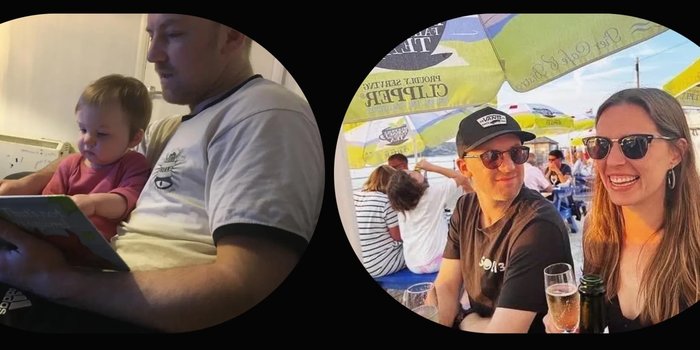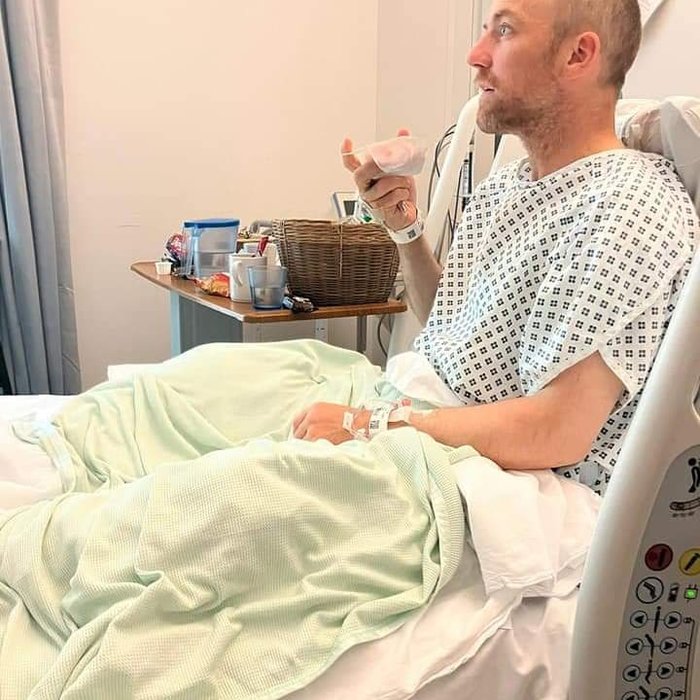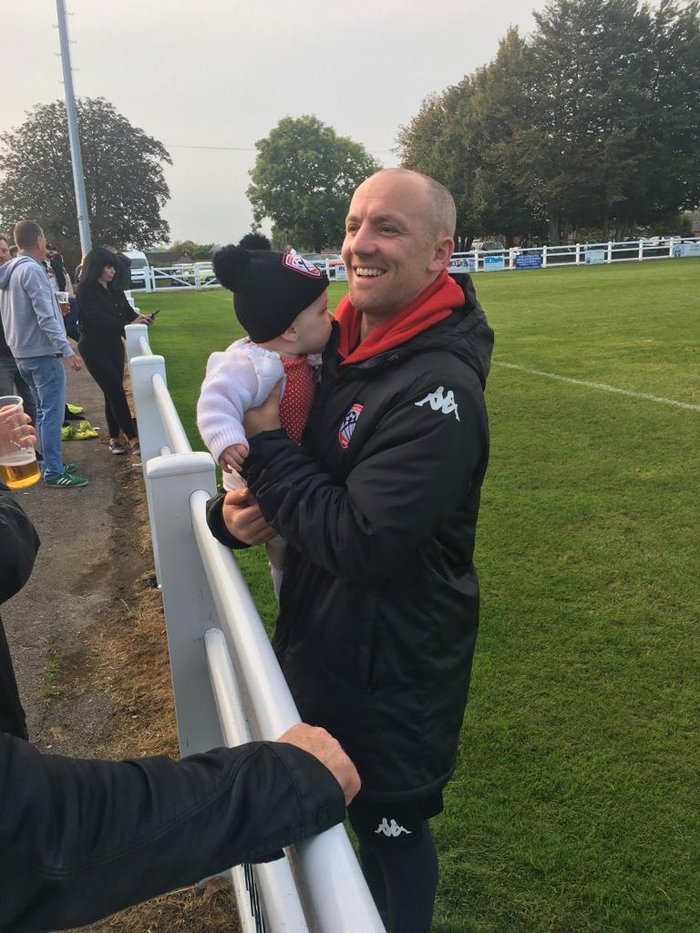"I found dialysis brutal and isolating. There is no time for anything else"
"I was 29 when diagnosed. Initially, I had flank pain and went to loads of different places for tests. Eventually, they found blood and protein in my urine, and I got sent to renal where they did a biopsy and they realised it was IgA Nephropathy (Berger’s disease).
"You get told when you get diagnosed with IgA Nephropathy that most likely nothing will happen. Well, I was one of those people who got it bad. I was completely healthy until I was diagnosed and even during the first year after I was all right. Then they called me in for a blood test in September 2020 and bang, my kidney function had gone from 73 to 30 per cent. It was so quick, and it happened out of nowhere, and I was at 13 per cent by that Christmas.
"My daughter was born in the following March and I had just started on dialysis. I was in so much pain, I couldn’t even lift her up. I was on dialysis upstairs at night when my girlfriend was sleeping and even in the day I’d be up there while my family was downstairs. I found dialysis brutal and isolating. There is no time for anything else.
"Still, it was important to keep busy for me because it gave me a window into normal life. I started managing a football team, we had set up a foodbank in the local town, and I was also working full time. I didn’t want to give anything up. I was still functioning, though there were also days when I couldn’t get out of bed. When I was busy, I didn’t focus on all the terrible stuff and I didn’t victimise myself."

"The transplant... was emotional and it felt like the end of a chapter"
"After I started dialysis, my mum, dad, girlfriend, stepmum and two of my best friends all offered to donate a kidney to me and we were looking at the paired/pooled scheme. I felt very lucky there was a long list of people who were willing to donate.
"Then dialysis stopped working. My creatinine was incredibly high and I wasn’t peeing. I was doing four exchanges a day on peritoneal dialysis and my nurse was saying, 'This isn’t going to be lasting much longer, you’re really not well.'
"Everything came to a head: I had a young kid, end stage kidney disease, we had a big event coming up at work, and I was still managing the football team. A week later I got a phone call. I remember still being in bed when the hospital rang me and called me in for a transplant, a kidney from a deceased donor. I was in the operating theatre by 11am. It was emotional and it felt like the end of a chapter.
"Recovering from the transplant has taken longer than I expected, physically and mentally, but it is still ten times better than being on dialysis. It’s incredible."

"It wasn’t that I felt embarrassment or shame about my illness, more that I kind of wanted to keep it private somehow"
"I’ve always had a love for football, it keeps me focused, and it’s been a big help for me in every way. When I was managing the team, none of the lads knew I was doing dialysis. I just didn’t feel that comfortable sharing how ill I was. I wanted to get on with my life and for it not be a huge thing. It wasn’t that I felt embarrassment or shame about my illness, more that I kind of wanted to keep it private somehow. It’s difficult to explain.
"I suppose one reason I didn’t tell anyone on the football team is because of the masculinity of sport. There’s lots of shouting, you’re in competition, and it’s aggressive. I didn’t want to show I was weak, inside or outside. I wanted to have the outlet of sport to let out that aggressive side of me. In training sessions I’d have all these tubes under my T-shirt. I’d be screaming at players and then going home and doing dialysis, sitting on my own. It was like a hidden world.
"When we finally got into the playoffs on goal difference the last game was very emotional and after the game I told the players about my illness. That was a big moment. The players were amazing and so supportive. People were crying and hugging in the changing rooms. I said to everyone, ‘Thanks for distracting me.’ The team now all say that I wasn’t looking well during that season. Perhaps it was obvious at the time. You’re scared to share things, aren’t you? But after you do there is a kind of liberation.
"There’s so much to my story and there are so many parts to it. What I hope is that sharing what happened to me can give someone a bit of a sense of what to expect.
"Living with kidney disease has just all been so quick – you don’t realise what’s happened until you look back and realise how intense it is. I have a blog called Dead Kidney Season and I’m currently writing a book about my experience too."
